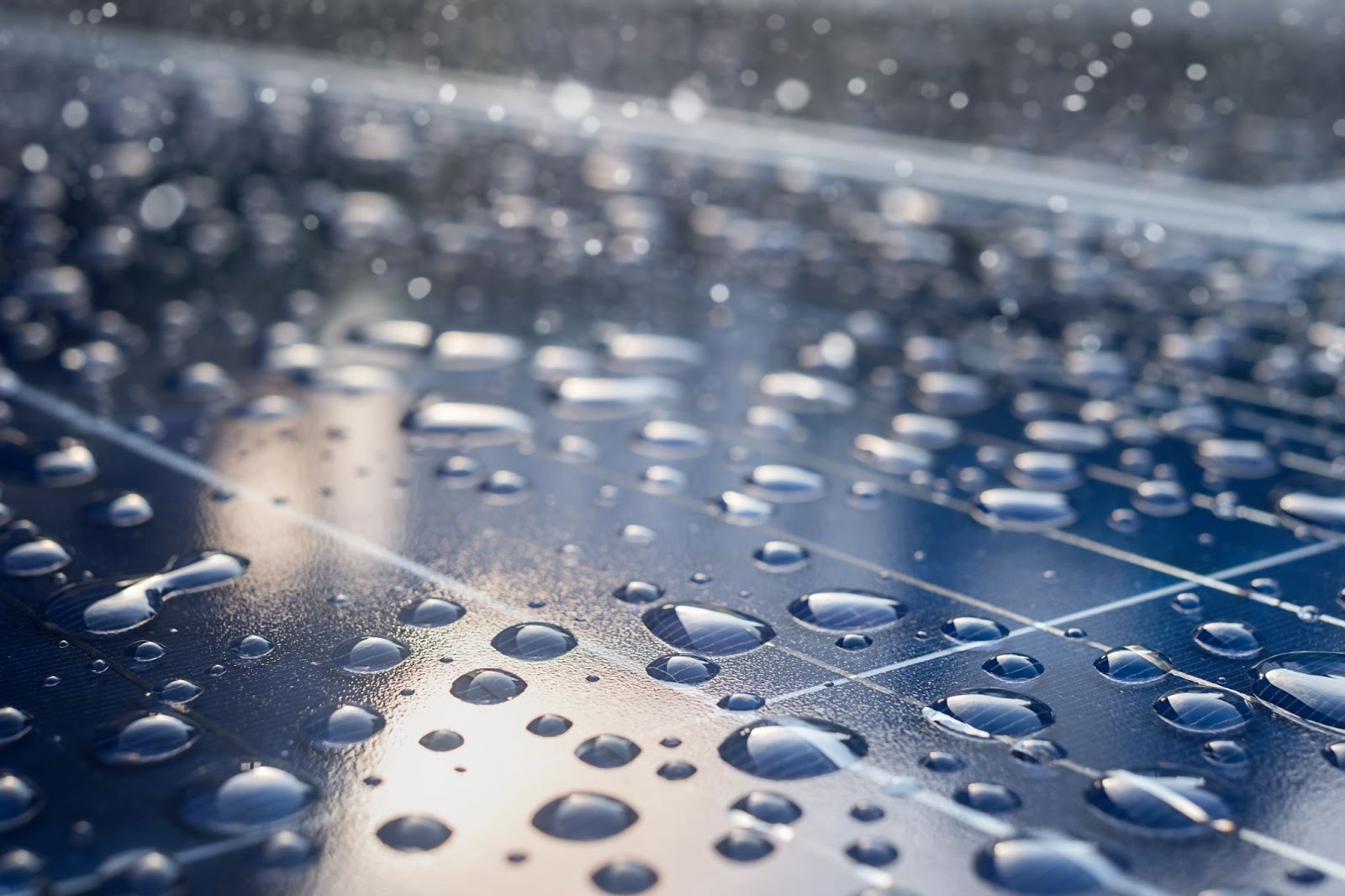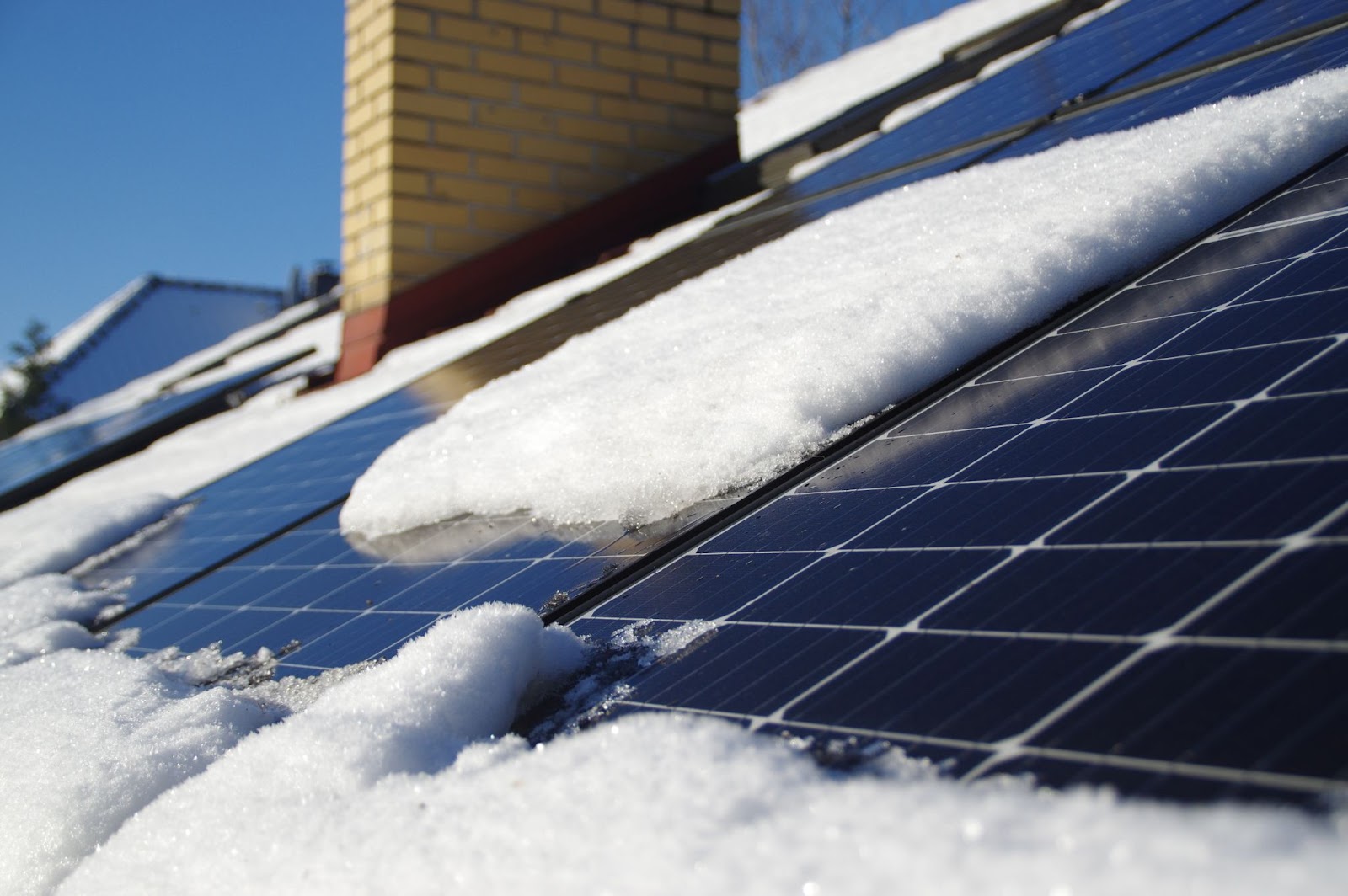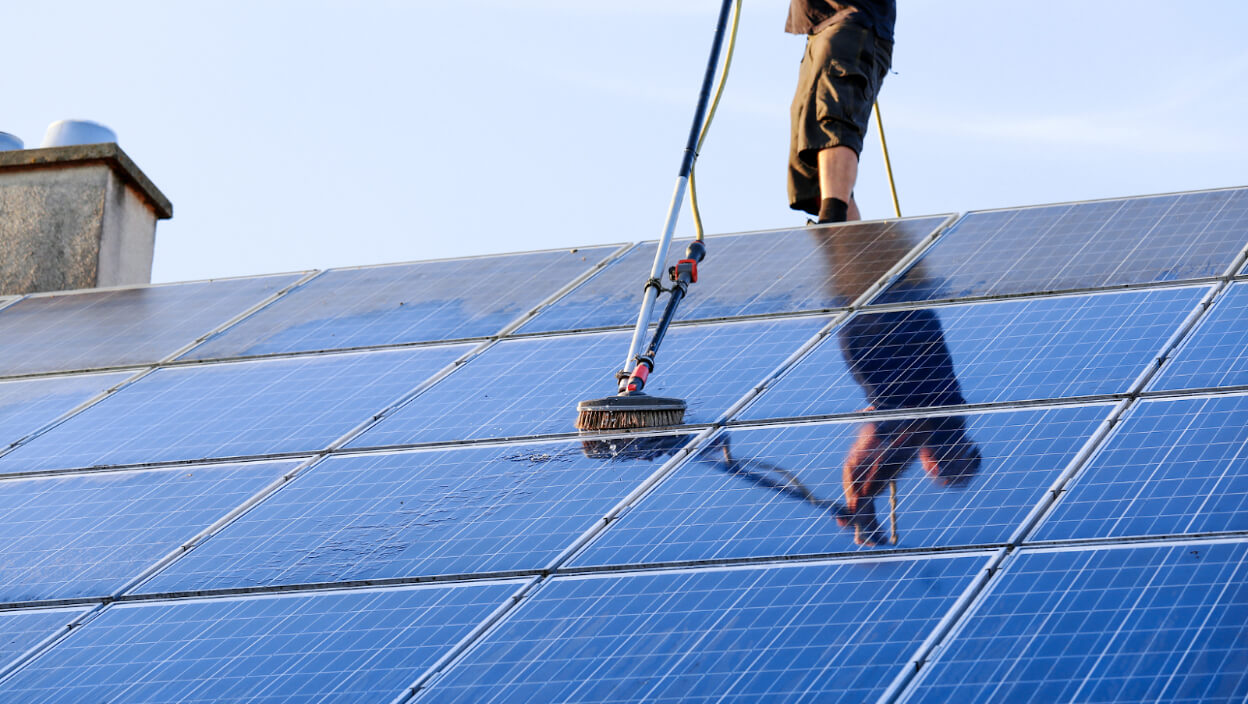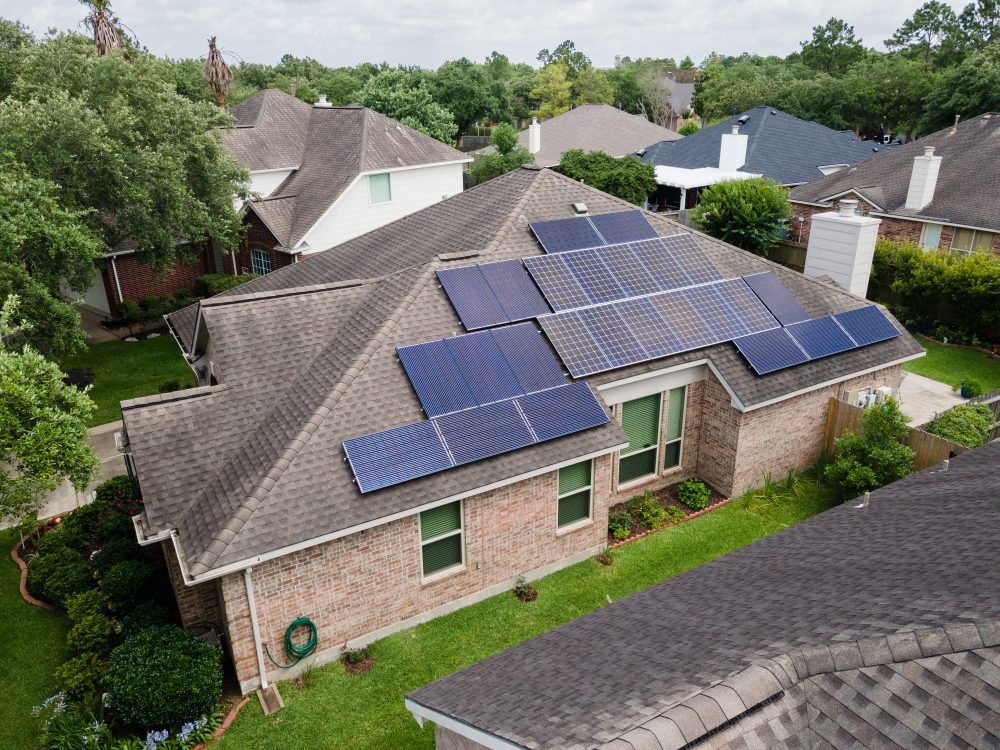Your solar panel system can still generate clean energy on some cloudy days, though less effectively than on sunny days.
Home solar panel systems can be a great addition to your home or business. Homeowners can utilize rooftop solar panels to convert free sunlight into electricity. As solar installation becomes more popular, many homeowners have questions about their solar systems.
A custom solar panel system can power your home and reduce your utility bills. Solar systems can work great during sunny days, but they can also generate clean electricity on cloudy or rainy days.
Even on cloudy days, there is still sunlight being filtered through the clouds. Your solar panels can use this light and create clean electricity. However, you will see less energy generation on cloudy days. Rain not only allows for energy generation but also helps wash away dust and debris from panels, maintaining their efficiency over time.
Solar energy has emerged as a clean and sustainable alternative to traditional fossil fuels.
The technology has dramatically improved since they were first installed on the White House in 1979. Home solar systems are more efficient than ever and can even work during cloudy and rainy days.
How Do Solar Panels Generate Clean Energy for Your Home?
Before we get into the longer answer, it’s helpful to understand how solar panels generate clean energy. Solar panels are made out of solar cells, which work due to the Photovoltaic Effect when the radiation from the sun hits panels. The sun produces radiation, most commonly seen as visible light, which can be harnessed into energy.
Solar cells are typically made out of silicon — or another semiconductor — which can generate an electrical charge from sunlight. When solar radiation — in the form of light — comes down to Earth, light photons knock electrons from atoms, setting them in motion and creating an electric flow.
Solar panels do not need heat from the sun to work, they only need light. This is how they’re able to generate electricity in the winter. While solar panels work best with direct sunlight, they can still generate electricity in cloudy weather.
Are Solar Panels Effective on Cloudy Days?
Solar panels can still generate electricity on cloudy days, although their efficiency is reduced compared to sunny days. Solar panels work by converting direct or indirect sunlight into electricity, but are most effective in direct sunlight. Even in cloudy weather, some sunlight can still penetrate the clouds and reach the panels. Solar panels typically produce 10-25% of their normal output in cloudy weather.
A storage battery can store excess solar-generated electricity on sunny days, which can be used on cloudy days to make up the difference. Most solar homes in the U.S. are still on the grid, meaning on the occasional cloudy day — your home will still have power.
For most of the United States, sunny days vastly outnumber fully overcast days, which means your solar system will still be worth the investment. Even the Upper Midwest and New England see more sunshine than Germany — a top solar market.
How Solar Panels Perform on Partially Cloudy Days
Not all cloudy days are the same. The thickness of cloud cover can determine how efficient solar panels can be at generating electricity. Partially cloudy days — or days when clouds cover 37.5% – 62.5% of the sky — filter less sunlight than fully overcast days.
Partially cloudy days are better for energy generation than fully overcast days, as less light is reflected or obstructed by clouds. This means more sunlight reaches your solar panels and can be converted into clean energy.
Interestingly, sometimes partially cloudy days can be better for solar production due to “cloud lensing” or the “edge-of-cloud effect.” High clouds can act as a lens, focusing more sunlight in a certain direction. Think about when it’s a partially cloudy day and you see the sunlight peak over the clouds. If that light hits your solar panels, you can capture more clean energy.
Solar Panel Efficiency on Overcast Days
Fully overcast days, when clouds cover the vast majority or all of the sky, are worse for solar generation. When clouds cover the sky, more sunlight is blocked or reflected away from your panels. This means there is less energy to convert into electricity for your home.
That said, overcast days are typically less frequent than fully or partially sunny days. Solar panels cannot always produce electricity on overcast days, which is when your home will need to pull more energy from a battery or the grid.
A good test to see if your panels could be producing electricity on cloudy days is looking for shadows outside. If there are shadows, your panels are more likely to generate clean energy for your home. It’s important to remember that cloudy days are always less efficient than fully sunny days though.
Can Solar Panels Function in Smoke or Smog Conditions?
Wildfire smoke can limit the effectiveness of your solar energy system. As long as sunlight can shine through the smoke or smog, your solar panels will generate electricity. Following the 2020 wildfires in California, smoke darkened skies so much that peak-hour solar production decreased by 10-30%, according to the National Center for Atmospheric Research.
The severity of the smoke, smog or air pollution can determine how efficient your solar panels perform. Your solar panels can still generate energy in these conditions with mild amounts of air pollution.
For homeowners in areas prone to wildfire smoke, a storage battery might be a good addition to your system. During the rare times, smoke can blot out the sun or reduce efficiency for a while — a storage battery can help you power your home using low-cost, clean energy. Thankfully, solar panels can reduce air pollution as more people switch to clean energy.

Can Solar Panels Generate Power During Rainy Weather?
Just like when there’s cloud cover, solar radiation can make its way through rain. If you can see outside without artificial light — the sun is shining. Your solar panels will still work in rainy weather, but will generate less output.
Sunny days will always be better for energy production, but solar panels can work on rainy days. Your system’s ability to generate clean electricity is dependent on the density of cloud coverage, which means there will be less energy when it’s cloudy or rainy.
If there is thick cloud coverage, where there are no shadows or blue sky in sight — your solar panels may not produce enough energy for your home. However, some manufacturers say that even on rainy days, their panels produce more than one might expect. Either way, most solar homes are still connected to the electrical grid for nighttime energy or additional energy in the day. A storage battery can also help homeowners use their low-cost, clean electricity during low-output days.
No matter where you live in the world, chances are it’s going to rain. Fortunately, there are more sunny and partially cloudy days than rainy days for most of the U.S. Home solar panel systems aren’t just worth it in southern California and the American Southwest, solar panels can pay for themselves in most of the U.S.
How Do Solar Panels Hold Up During Thunder and Lightning?
Solar panels are generally safe during thunderstorms and do not attract lightning more than other structures. However, proper precautions are essential to ensure the longevity and safety of your solar energy system during extreme weather conditions.
One of the most critical aspects of protecting solar panels during thunderstorms is proper grounding and surge protection. These measures are crucial to safeguard the system from power surges that may be caused by nearby lightning strikes. Most modern solar panel systems come equipped with built-in safety features designed to prevent damage from electrical surges.
To maintain the effectiveness of these protective measures, homeowners should have a certified technician periodically inspect the grounding and protective components of their solar panel system. This regular maintenance can help ensure that your solar investment remains safe and functional, even in the face of severe weather events.
Can Solar Panels Withstand Hailstorms?
High-quality solar panels are engineered to withstand various weather conditions, including hailstorms. Many solar panels undergo rigorous testing to ensure they can handle the impact of hailstones up to a certain size. The glass covers on solar panels are typically made of tempered glass, which is highly durable and resistant to impact.
However, it’s important to note that while solar panels are designed to be resilient, extreme hail events can still potentially cause damage. To mitigate this risk, installing solar panels at an optimal angle can help reduce the direct impact of hail. This strategic placement can offer an additional layer of protection during severe weather events.
For added peace of mind, homeowners may want to consider including their solar panel system in their insurance coverage. This can provide financial protection in the rare event of hail damage to the solar installation. By taking these precautions and understanding the resilience of modern solar technology, homeowners can feel confident in the durability of their solar energy investment.

Do solar panels work on snowy days?
Solar panels can still generate electricity on days with snowfall. As long as there is visible daylight, there is solar radiation that can be harnessed into clean electricity. Similar to rainy days, cloud coverage is ultimately more important than precipitation. Thick, dense clouds mean even less energy generation.
However, unlike rain — snow builds up and can collect on solar panels. A light dusting of snow typically won’t be a problem. Either the wind will blow off the snow or it will melt off on the next sunny day. Sunlight can even shine through light snow and can be used to power your home.
When there is a thick snowfall that covers your solar panels, it might be a good idea to hire a professional to clear snow off your panels. Professionals have the right equipment for their safety and the safety of your panels. Do not let heavy snowfall accumulate on your panels for a long time as it can prevent output and potentially damage your solar panels.
Freezing temperatures are unlikely to damage your solar panels or affect energy generation. Solar panels do not use heat to generate electricity, but instead harness solar radiation that is present in sunlight. Cooler or cold temperatures can even be optimal for your solar system. Cold temperatures can improve solar panel efficiency.

Does rain actually clean solar panels?
Rain can remove dust and small debris from your solar panels. This dust, dirt and debris can build up and block sunlight from reaching your solar panels.
While rain can rinse off this dust, you will still need to schedule solar panel cleaning from a professional. It’s recommended that solar panels are cleaned once every six months — or twice a year. For some climates, this may be more and for others, it may be less.
If your solar panels are oriented at an angle — and not lying flat — rain can be beneficial. As the rain falls on your solar panels, the water will loosen dirt, dust or leaves and then gravity does the remaining work. However, rain can carry its sediment and particles floating in the wind can stick to rain, which is why it’s best to see routine cleanings.

Want to go solar? Here’s how Enact can help.
There’s a reason why residential solar installations are becoming more popular across the U.S. A custom home solar energy system can power your home by producing low-cost, clean energy. A custom solar system from Enact can help you harness the power of the sun, even on cloudy or rainy days, ensuring you save on energy costs year-round. The more energy your solar system produces, the less you rely on the electrical grid which is subject to price fluctuations.
A good solar panel system can save you thousands of dollars and last for 25 years or more. Not every investment in sustainability can pay for itself like solar. Enact empowers homeowners to get the best solar system for their homes. We simplify the solar purchase and installation process — and offer homeowners choice and transparency.
Can solar panels be installed on a rainy day?
Yes, solar panels can be installed on a rainy day, but it may be less ideal due to safety concerns like slippery surfaces. Most installers prefer dry conditions to ensure safe handling of equipment.
Can heavy rain damage solar panels?
No, heavy rain typically does not damage solar panels. Solar panels are designed to withstand various weather conditions, including rain. In fact, rain can help clean off dust and debris, maintaining panel efficiency.
Make the leap to solar with Enact
Our friendly team of home energy advisors design custom home solar panel systems that meet your energy usage and budget. The process to get a free solar quote is simple — we just need you to answer a short questionnaire and send us a copy of your latest utility bill. Our energy advisors will have options for you before your free consultation.
Enact customers get choice over their solar equipment and financing options. During your consultation, we will discuss how we can meet your solar goals. When we find the right system for your home, we connect you with a top solar installer in your area.
Unlike a traditional solar installer, Enact gives our customers access to many different solar panels, inverter and storage battery manufacturers. We also make the entire process more transparent — using the Enact platform, you can see your installation’s progress every step of the way.
Based on your feedback, our team can quickly change the design to meet your current or future needs. Then it’s the easy part — we coordinate the solar installation. You can go solar in around ten weeks with a custom system that can save you thousands.
Going solar can be a great addition to your home and life. Make sure you get the right system with Enact.

